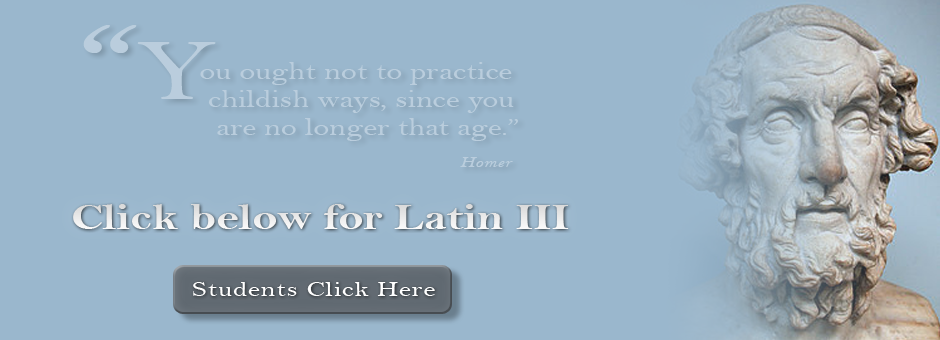Calendar
Syllabus: clas-4040-syllabus-fall-2017
Henri marrou-old-education-sophism-2
Walden, Universities of Ancient Greece: https://archive.org/details/universitiesofan00walduoft
This week’s readings are in the same PDF as last weeks, just begin at page 46 ff.
Henri marrou-old-education-sophism
Also, I think I mislead you into thinking perhaps that you had to read the Gorgias dialogue for this week. It is actually to be read for next week.
I apologize for any confusion.
**Homework**
Please spend twenty minutes practicing the following exercise:
https://www.quia.com/mc/2240067.html?AP_rand=1865047311
**Homework**
Please complete the activity, and write out each of the fifteen words on a sheet of paper. To be collected tomorrow.
Note also that long o (ō) signifies omega, and short o (o) signifies omicron
Practice the Greek Alphabet 1 – tabney.com
|
Regular Order
|
Regular Order
with Answers |
Random Order
|
Random Order with Answers
|
**Homework**
Analogy Exercise
**Please submit the answers to me by email at Mkeil2@schools.nyc.gov**
Dear Class,
Here is the Google Books version of the Marrou text for this week. It is unfortunately incomplete, but read as much as you can of it.
Use this link, and scroll down to page 229
A History of Education in Antiquity
Also, here is Plutarch’s life of Cicero
And Demosthenes
In your imitation of Plutarch’s biographical style for this week, be guided by his characteristic statement at the beginning of his Life of Alexander:
For it is not Histories that I am writing, but Lives; and in the most illustrious deeds there is not always a manifestation of virtue or vice, nay, a slight thing like a phrase or a jest often makes a greater revelation of character than battles when thousands fall, or the greatest armaments, or sieges of cities. Accordingly, just as painters get the likenesses in their portraits from the face and the expression of the eyes, wherein the character shows itself, but make very little account of the other parts of the body, so I must be permitted to devote myself rather to the signs of the soul in men, and by means of these to portray the life of each, leaving to others the description of their great contests.



